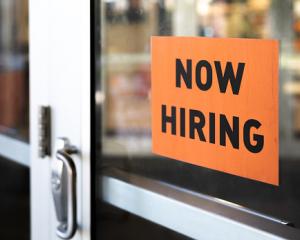
While wages are reportedly going up for Otago staff, that benefit may be countered by rising fuel and transport costs and an increase in imported goods’ costs, because of the weakening New Zealand dollar.
The Otago Chamber of Commerce quarterly business confidence survey to October showed expectations that the general business situation for the country would deteriorate over the next six months were up from 36.8% the previous quarter to 40%.
While Otago and Southland have in recent weeks featured strongly in regional and household surveys, business confidence surveys continue to dog the Government. Chamber chief executive Dougal McGowan said the Otago survey tied in with last week’s NZIER quarterly survey, which saw business confidence levels at their lowest since 2009.
Mr McGowan said the key aspect to Otago businesses’ expectations of a deterioration was a rise in perception that profitability would be down.
This feeling was prompted by increasing labour costs from wage rises, which in several groupings was up for the quarter.
"What we are seeing here is the effects of wage inflation," he said.
The number of small to medium businesses expecting to give a wage increase in the coming year of between 1%-2% rose from almost 30% to almost 40%, but a greater number of businesses said they were less likely to offer an increase in the 3%-5% band.
More than 60% of respondents designated staff costs as having the largest effect on their profitability during the past six months. Expectations for the effect of staff costs for the year ahead eased off to below 60%, though.
However, Mr McGowan said fuel costs were the next-largest and a rising concern, with the number of respondents concerned about their effect on profitability moving from about 25% to more than 30%.
"The latest fuel cost rises [last week] were too late to include, but show just how businesses expect to be effected," he said.
It would affect the supply chain in both incoming goods and also outgoing finished products, as transport costs rose.
"That transport cost can be expected to be passed on to the consumer," Mr McGowan said.
While he agreed rising wages boded well for consumers, he believed that income, and increased spending power, would be overshadowed.
"With the [New Zealand] dollar being steadily pushed down, that will mean all imported goods will come at a higher cost," he said.
On the question of hiring skilled or specialist staff, 47.2% of the respondents were finding it more difficult than three months ago.
Interest rate charges were also of concern, and while 54.3% expected them to stay unchanged, Mr McGowan noted 40.3% expected rates to go up.
Comments
Back the bus up, 18 months ago my wife found it very hard to get a job in Dunedin so was this benchmarked where Otago was then to where it is now? or have the remainder of the country caught up with the low dollar or is this so Otago feels better With me being fortunate of having job that was transferable with my wife not being able to get full time employment - along with how Dunedin was not being run by Cull and the Greens on council made the decision easy to move away from Dunedin. Again this is the completely other direction to what Cull has reported on his FB video blog that Dunedin was Buzzing.
Definitely a huge downturn for our small business so far this financial year.











